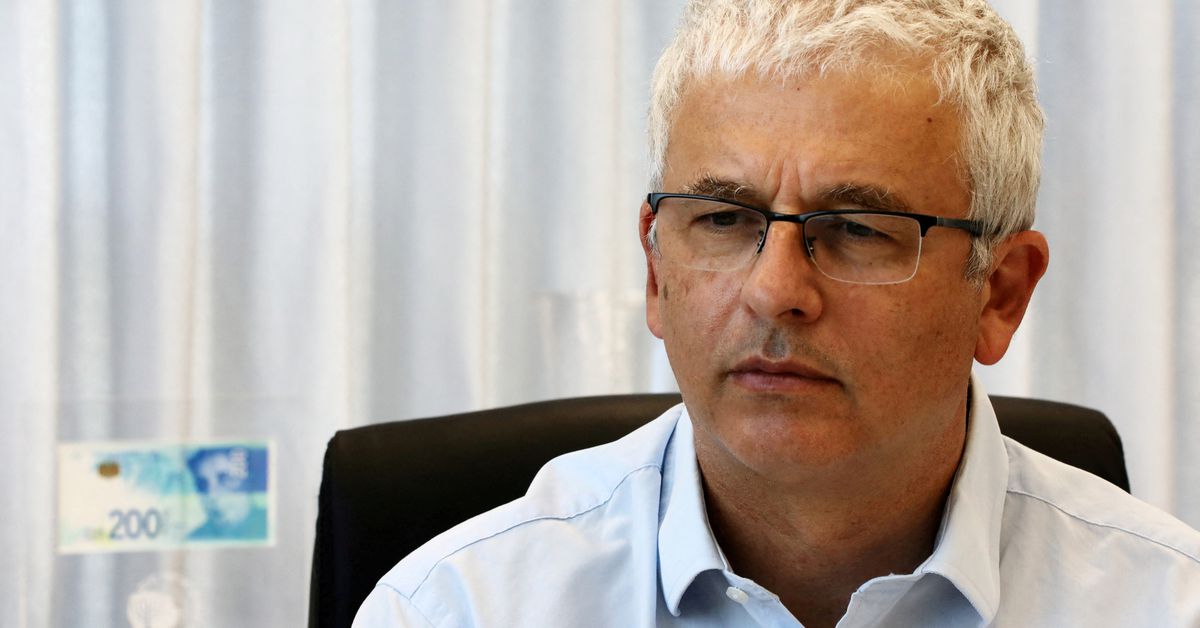Israel rate hikes a process — not a one-off, cenbank official says

JERUSALEM, April 12 (Reuters) – Israeli policymakers will continue to gradually raise short-term interest rates as long as the economy remains strong and inflation expectations stay above the 1-3% target rate, Bank of Israel Deputy Governor Andrew Abir said on Tuesday.
After standing pat for two years, the central bank on Monday raised its benchmark rate by a quarter-point to 0.35%, citing robust economic growth, a tight labour market and too high inflation. Most economists polled by Reuters had projected a more modest 0.15 point move to 0.25%.
“More important is the process itself rather than how big is the first step,” Abir said in an interview with Reuters. “It’s a process — not a one-off, and we are quite clear on that.”
Register now for FREE unlimited access to Reuters.com Register
Financial markets and the central bank’s own economists are expecting a rate of 1.5% in a year from now, but Abir stressed: “It’s not something we are 100% committed to.”
The pace of increases hinges on economic data, he said, echoing remarks of Bank of Israel Governor Amir Yaron on Monday.
Just a year ago, the annual inflation rate was 0.8% but steadily grew throughout 2021 to reach 3.5% in February, its highest since 2011. The central bank sees a 3.6% rate by the end of 2022 before easing back to 2% next year.
“We have been patient,” Abir said, adding policymakers opted to “err on the side of caution” during the COVID-19 pandemic. “So, it’s been a long time coming.”
The bank, he said, “would be more comfortable when inflation expectations come back inside our target range.”
Inflation in Israel is below the United States and many European countries but still warranted higher rates, he said. “Interest rates of close to zero (0.1%) are no longer appropriate for an economy that is growing and inflation outside our range,” Abir said, pointing to near full employment and rising wages. Israel’s economy grew 8.2% in 2021 and is forecast to grow 5.5% this year.
And despite COVID and the Ukraine-Russia conflict harming the supply chain and raising costs globally, Abir said consumer spending in Israel is strong. “There’s certainly demand side-led inflation. It’s not just a supply story,” he said.
Abir rejected criticism from exporters opposed to the rate hike since it narrows the interest rate gap with the United States and strengthens the shekel , saying correlation with changes in the equity markets are a bigger factor for the dollar-shekel exchange rate.
He also said he hoped Israel’s government, which is in danger of falling, survives and passes a 2023 budget. “I would hope that we’re not going through a similar period that we had in the three years prior to the (current) government which made economic planning a lot more difficult,” Abir said.
Register now for FREE unlimited access to Reuters.com Register
Reporting by Steven Scheer Editing by Chizu Nomiyama
Our Standards: The Thomson Reuters Trust Principles.






